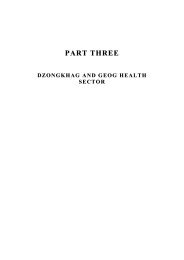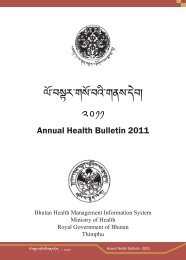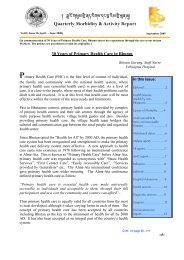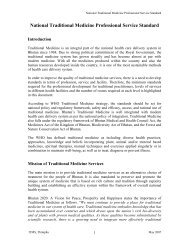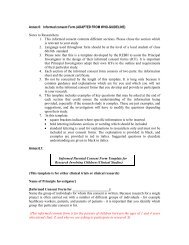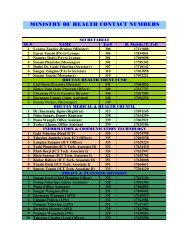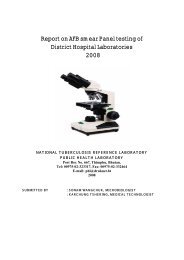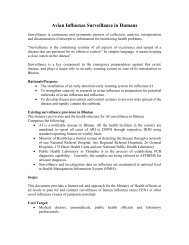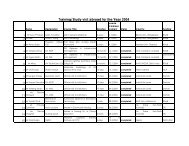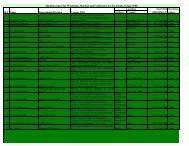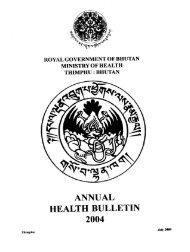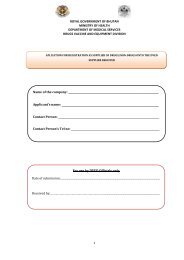I. INTERNAL AUDIT CHARTER - Ministry of Health
I. INTERNAL AUDIT CHARTER - Ministry of Health
I. INTERNAL AUDIT CHARTER - Ministry of Health
Create successful ePaper yourself
Turn your PDF publications into a flip-book with our unique Google optimized e-Paper software.
Government Internal Audit Standards, Royal Government <strong>of</strong> Bhutan<br />
(b)<br />
(c)<br />
(d)<br />
(e)<br />
(f)<br />
(g)<br />
The scope and objectives, timing, and reporting arrangements should be<br />
defined and agreed for consultancy assignments in the same way as for<br />
assurance assignments. The objectives should make it clear that the<br />
Internal Audits’ involvement is in a consultancy role. The Head <strong>of</strong><br />
Internal Audit will reserve the right to audit any risk management,<br />
control and governance processes developed with Internal Audit acting<br />
in its consultancy role.<br />
Internal Audit should apply the risk-based systematic audit approach by<br />
independent acquisition and examination <strong>of</strong> relevant evidence or by<br />
using risk and control evaluation methods. At each stage <strong>of</strong> the<br />
assignment, auditors should consider what specific audit work needs to<br />
be conducted or to what extent review <strong>of</strong> evidenced management<br />
activity is sufficient to support an independent and objective audit<br />
opinion.<br />
Internal Audit opinion can also be derived by the use <strong>of</strong> supplementary<br />
audit techniques and approaches.<br />
Internal Audit should obtain and record sufficient relevant evidence to<br />
support their conclusions and to demonstrate the adequacy <strong>of</strong> evidence<br />
obtained to support pr<strong>of</strong>essional judgements.<br />
Internal Audit should review their findings with the Head <strong>of</strong> the<br />
Department/Agency, making recommendations for dealing with any<br />
weaknesses and <strong>of</strong>fering consultancy support if appropriate.<br />
The Head <strong>of</strong> Internal Audit should inform the Head <strong>of</strong> <strong>Ministry</strong>/Agency<br />
<strong>of</strong> any remaining material weaknesses. The Head <strong>of</strong> Internal Audit<br />
should develop standards and retention requirements for all audit records<br />
and documentation, whether they are held on paper or electronically.<br />
They should control access to audit records and should obtain the<br />
approval <strong>of</strong> Head <strong>of</strong> <strong>Ministry</strong>/ Agency before releasing records to<br />
external parties.<br />
20.2.3 Follow Up<br />
(a)<br />
(b)<br />
Follow-up will be a review <strong>of</strong> the effectiveness <strong>of</strong> management’s<br />
response to assignments’ findings and recommendations. The follow-up<br />
findings should be reviewed with the Head <strong>of</strong> Department/Agency<br />
before being reported.<br />
The Head <strong>of</strong> Internal Audit should develop procedures to escalate<br />
management responses which they judge to be inadequate in relation to<br />
the identified risk. These procedures should ensure that the risks <strong>of</strong> not<br />
taking action have been understood and accepted at a sufficiently senior<br />
management level.<br />
Internal Audit Section, <strong>Ministry</strong> <strong>of</strong> Finance, Thimphu<br />
Page 21 <strong>of</strong> 28



